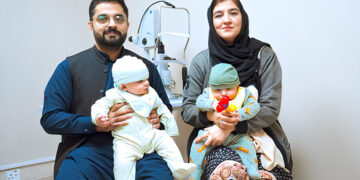BY : Humna Arif Rajput
Szabist’s Media science student.
KarachiKarachi Pakistan : I am writing with regard to the misuse of antibiotics worldwide, which seriously raises concern with respect to public health. According to a 2019 report by the World Health Organization, the prescription of antibiotics occurs frequently without due consultation from the doctor. Furthermore, in most countries whose laws and regulations are relatively soft, such drugs are readily available without prescription from a doctor. Hence, most people are misusing such drugs in inappropriate ways that critically threaten public health. Perhaps the greatest danger of overusing antibiotics is that it fosters resistance in bacteria. If bacteria are used too often or in the wrong manner, they may become accustomed to it and begin to adapt. Thus, such things as pneumonia, tuberculosis, and even minor infections might be almost impossible to treat with antibiotics someday.
Several factors lead to this problem. Most people have no idea how to correctly use antibiotics, and, in many cases, doctors provide them because of patient demand. This is also an issue for agriculture, as they
use these drugs to enhance the growth of livestock. To combat the growing problem, the WHO recommends the following steps: 1. Stricter regulation: The government has to enact tougher legislation that dictates sales only with prescriptions, i.e., the availability of antibiotics should be restricted to a prescription 2. Public education: These individuals need to be informed of the appropriate use of antibiotics and how misuse also produces extreme effects 3. Hospital policy: Hospitals should have policies that ensure antibiotics are prescribed or administered only when absolutely necessary. 4. International cooperation: Countries should collaborate in the monitoring and regulation of antibiotics and resistance. In conclusion, everyone should be concerned with the overuse of antibiotics and act to preserve their efficiency. The guidelines by WHO will be followed and a future will be prevented where a simple infection turns into a matter of life and death.



















